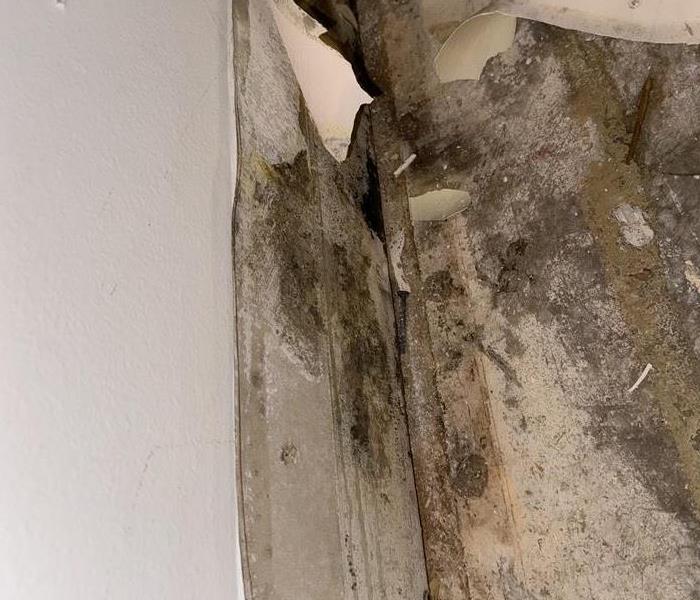How Mold Spreads: Understanding the Process and How SERVPRO® Can Help
11/12/2024 (Permalink)
Mold is a common issue that homeowners and businesses often face, especially in areas with high humidity or where water damage has occurred. Understanding how mold spreads is crucial in preventing and mitigating its impact on property. Once mold begins growing in a space, it can spread rapidly and cause extensive damage if not addressed. Here’s how mold spreads and how SERVPRO of Cape Coral can help with expert mold remediation services.
Mold Growth Basics
Mold is a type of fungus that thrives in damp, humid environments. It reproduces by releasing microscopic spores into the air. These spores are lightweight, making them easy to travel through the air and land on various surfaces. Once the spores land in a new location with favorable conditions—such as moisture, warmth, and organic material to feed on—they can begin growing and forming new mold colonies.
The Role of Moisture
The primary factor that enables mold growth and spread is moisture. Mold spores are always present in both indoor and outdoor environments, but they only become a problem when they find damp areas to settle. This is why water damage, leaks, or high humidity levels often result in mold problems. Common sources of moisture include leaking pipes, roof leaks, floods, or even condensation from poor ventilation.
When mold spores find moisture, they start growing within 24 to 48 hours. Mold can grow on wood, drywall, carpeting, and even insulation, making it a serious concern for property owners. The key to preventing mold spread is controlling moisture levels in your home or business.
Airborne Spores
Once mold establishes itself, it continues to release spores into the air, which can then travel throughout your property. Air currents, HVAC systems, and even foot traffic can help spread mold spores to different rooms or areas. This airborne nature makes mold difficult to contain without proper intervention.
Surface Contamination
Mold doesn’t just spread through the air—it can also spread by direct contact. If mold grows on a surface, it can release spores into the immediate area or onto neighboring surfaces. For example, if mold grows on a wall, it can spread to furniture, flooring, or other materials that are in close proximity.
How SERVPRO® Can Help
When dealing with mold, it’s essential to call professionals like SERVPRO. Mold remediation is not just about cleaning visible mold but also about addressing the underlying moisture issue to prevent further spread. SERVPRO’s trained technicians use advanced equipment to detect moisture, remove mold colonies, and purify the air. Additionally, they’ll take steps to ensure that mold spores don’t continue to spread through the air or on surfaces.
With SERVPRO’s expert mold remediation services, you can be confident that your home or business will be restored to a clean, safe environment. Prevention and quick action are key, so if you suspect mold growth, don’t hesitate to reach out to SERVPRO of Cape Coral for immediate assistance.





 24/7 Emergency Service
24/7 Emergency Service
